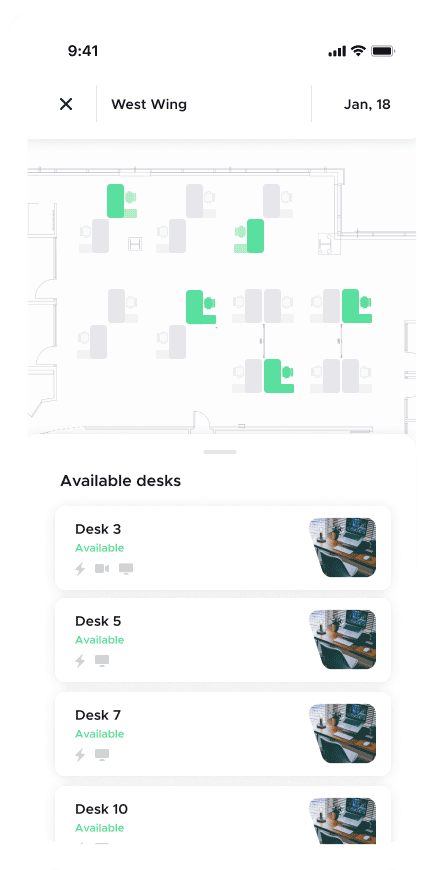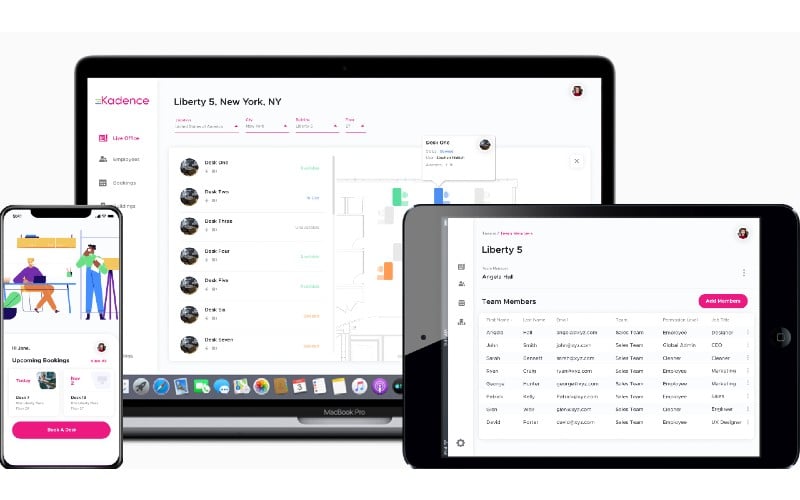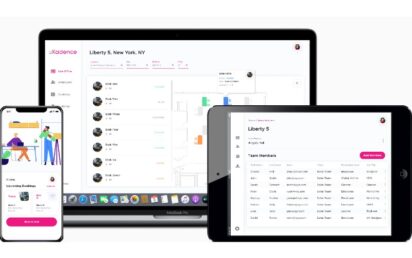The founder of a UK-founded technology company expects it to grow 100% this year following a ‘hard pivot’ from hardware to software.
Dan Bladen founded Chargifi in 2013 after he and wife Jessica constantly ran out of power for their devices while travelling the world. Its Internet of Things platform offered wireless charging for devices such as smartphones and drones in workplaces and public venues.
Soon after moving his family and the company headquarters out to Silicon Valley, the COVID-19 pandemic and global move to working from home wiped out its revenues – leading to some tough decisions and a pivot which gave birth to its current software-as-a-service platform.
You can read the full story of the pivot at the TechBlast link below.
We moved to US – then COVID threatened to destroy my business
Rebranded as Kadence in October 2021, the new solution helps manage people and spaces for companies looking to get the most out of hybrid working.
“We essentially pivoted a hardware company into a SaaS company over the pandemic: our revenue went to zero and now we have over 200 customers,” Bladen tells BusinessCloud. “I expect us to grow by more than 100% this year.”
Bladen has high hopes for the app, developed following a fresh $4.5 million funding injection led by London VC Hambro Perks.
Huge hybrid opportunity
“My belief is that there are three workplace apps every employee has on their phone: email, a messenger app and Teams. There is going to be a fourth: for managing hybrid working. We think that’s a huge opportunity,” he explains.
“Using our app, you can see when your team is going to be heading into the workplace; their schedules and where they are sat; the different amenities which are available; and book a specific space in any office.
“If I’m in a suburban environment, I might want to book my parking there as well. I can confirm that booking and share it on Slack, on Teams or on email with any of my colleagues.”

Bladen says Kadence’s competitors are focused on visitor management, booking rooms and booking desks, rather than the “web of relationships” essential to any high-performing company.
“Cracking hybrid is all about cracking rhythms: we aim to help people get into a rhythm for themselves, for their families and also for their colleagues. We feel like we’re building an operating system for hybrid,” he explains.
“If I know when my product team is coming in, I can plot a flight plan for them; if I’m in the marketing team, I can tag myself in with the head of product to touch base the week before a key product launch.
“Some customers have gone from one desk per person to 0.6 desks per person. And so they need these rhythms, these cadences to even manage capacity now.”
Global team
As well as California’s Bay Area, Kadence has teams in London, Belfast and Salt Lake City, alongside remote-based employees. As such, it is very much an early adopter of its own app.
“Our global team meets maybe once a week, sometimes twice a week, to figure out what to do – and then we go away and do the work essentially. That’s just super productive,” Bladen says.
“The office is gone. The platform for work is now your working week: whatever your working week is, that time is the platform, not the place it is carried out.
“The office, therefore, is in that toolkit layer – in the ‘how’ layer, not in the ‘where’ layer. And so you go to the office for a particular type of work: collaboration, cohesion, culture, whiteboarding, quick decisions, onboarding, training.”


